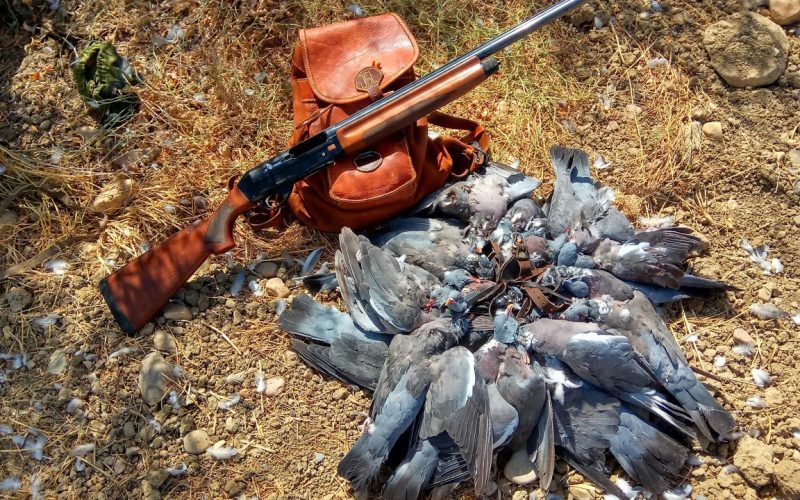Hunting in regions with heavy insect activity presents a unique set of challenges, requiring careful preparation and strategic execution. Mosquitoes, ticks, and other biting insects can make long hours in the field unbearable, affecting focus and comfort. Additionally, the presence of insects often coincides with high humidity, which can impact scent control and overall hunting success. To effectively hunt turkeys in these conditions, hunters must employ techniques that minimize insect interference while maintaining stealth and patience. Understanding how environmental factors influence turkey behavior is crucial in adjusting tactics for a successful hunt.
Insects thrive in areas with dense foliage, moist soil, and stagnant water, all of which provide turkeys with essential food sources and cover. However, heavy insect activity can cause turkeys to alter their movement patterns, often leading them to more open or breezy areas where bugs are less prevalent. This shift in behavior means hunters must carefully scout locations and remain adaptable in their approach. Using natural repellents and choosing strategic hunting spots can help mitigate the discomfort caused by insects, allowing for greater focus on tracking and calling turkeys effectively.
Right Gear for Bug-Heavy Hunting Environments
Proper gear selection plays a critical role in maintaining comfort and effectiveness while hunting in insect-dense locations. Lightweight, moisture-wicking clothing with built-in insect repellent properties can reduce the number of bites and distractions in the field. Many hunters opt for long-sleeved shirts and pants treated with permethrin, which repels ticks, mosquitoes, and other common pests. Additionally, using a head net or face mask can provide an added layer of protection without compromising visibility or movement.
Choosing the right boots is equally important, as damp environments often harbor ticks and chiggers. High-quality waterproof boots with gaiters prevent insects from crawling up the legs, reducing the risk of bites. Hunters should also consider using scent-free insect repellent sprays to avoid alerting turkeys to their presence. Since strong chemical odors can spook game, selecting a repellent designed for hunters helps maintain scent control while offering protection against biting bugs. With the right gear in place, hunters can minimize discomfort and concentrate on locating turkeys without constant insect-related distractions.
Adjusting Hunting Strategies
Adapting hunting strategies to counteract insect-heavy environments can significantly improve the chances of a successful turkey hunt. One effective tactic is positioning the blind or hunting setup in breezy areas where insects are less concentrated. Open fields, ridgelines, and higher elevations often experience more airflow, reducing the density of mosquitoes and other flying pests. Additionally, these locations allow for better visibility and improved calling effectiveness, making it easier to lure turkeys within shooting range.
Since turkeys may avoid areas with excessive insect activity, scouting becomes even more essential. Identifying roosting sites, feeding zones, and travel corridors ahead of time helps determine where turkeys feel most comfortable. Early morning and late afternoon hunts tend to be more productive, as turkeys are often on the move during cooler hours when insects are less aggressive. Calling strategies should remain natural and well-timed, ensuring that turkeys respond without hesitation. By staying patient and aware of shifting turkey behaviors, hunters can adjust their tactics accordingly and increase their chances of success.
Spring turkey hunting presents additional challenges as warmer temperatures encourage insect populations to thrive. Learning to work with these environmental factors rather than against them can make a significant difference. Many experienced hunters utilize spring turkey hunting tips to refine their approach, making subtle adjustments to their calling techniques and movement patterns. Understanding how weather conditions influence both turkeys and insect activity ensures a well-rounded hunting strategy that adapts to changing circumstances.
Stealth and Concealment Tips
Remaining undetected is crucial when attempting to hunt turkeys in any environment, but insect-heavy areas pose additional obstacles. Constant swatting or shifting due to discomfort can alert turkeys to a hunter’s presence, making concealment even more challenging. Utilizing natural cover and well-constructed blinds can help minimize movement while providing some protection from biting insects. Setting up in shaded areas where bugs are less active allows for a more comfortable and effective hunting experience.
Keeping noise levels low is essential, as turkeys have keen hearing and can detect unnatural sounds with ease. Using soft, controlled movements to brush away insects rather than sudden swats prevents unnecessary disturbances. Additionally, applying scent-free bug repellent ahead of time eliminates the need for frequent adjustments during the hunt. Many hunters also opt for camouflaged gloves and masks, which not only help with concealment but also provide an extra barrier against bug bites. By maintaining patience and limiting unnecessary motion, hunters can remain undetected and increase their chances of successfully calling in a turkey.
Post-Hunt Care and Precautions
After a long day in the field, proper post-hunt care is essential to avoid potential health risks associated with insect bites. Ticks, in particular, can transmit diseases such as Lyme disease and Rocky Mountain spotted fever, making thorough inspections crucial. Hunters should check their clothing, gear, and skin for any attached ticks before heading home. Showering immediately and using fine-toothed combs help remove any lingering pests, reducing the risk of bites leading to infections.
Washing hunting clothes in hot water eliminates any insects that may have hitched a ride during the hunt. Additionally, keeping gear clean and dry prevents moisture buildup, which can attract more bugs during future outings. If hunting in an area with a high concentration of mosquitoes, applying an anti-itch or antiseptic treatment to any bites helps reduce irritation and potential infections. Taking these extra precautions ensures a safer and more enjoyable hunting experience, allowing hunters to return to the field with confidence.
Successfully hunting turkeys in areas with heavy insect activity requires a combination of preparation, adaptability, and patience. By understanding how turkeys react to bug-heavy environments and implementing effective strategies, hunters can overcome these challenges and make the most of their time in the field. Investing in the right gear, adjusting hunting tactics, and maintaining stealth all contribute to a more successful and comfortable hunt, regardless of the presence of biting insects. With careful planning and persistence, hunters can continue to enjoy their pursuit of wild turkeys even in the most challenging conditions.












